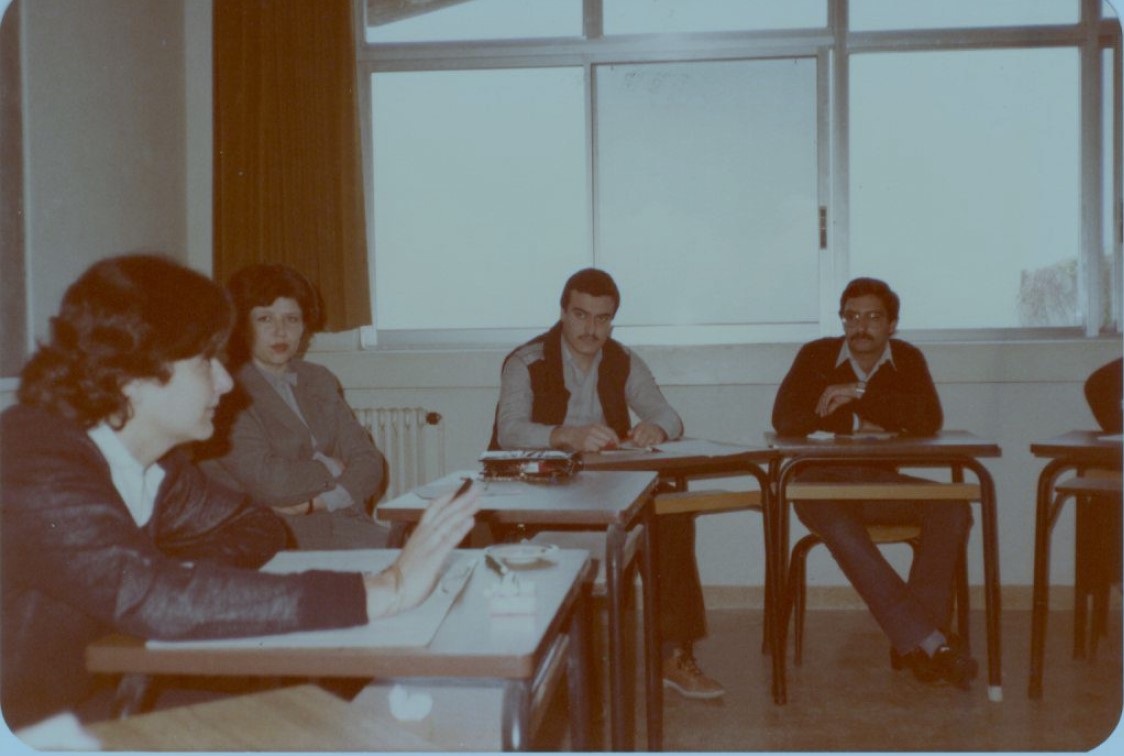
Reference of Social Work In The Face of Crises and Disasters Booklets – Part Two
Researcher – Hiam Samaha Kahi
Research Assistant – Aimee Ghanem
A new practice can be identified in some periods of the 1975 Lebanese war, which was the “car bombs” that exploded in residential neighborhoods, which, in addition to killing in its most horrible manifestation, displaced hundreds of families, left behind a mass of destruction and desolation, and a large number of wounded people. Furthermore, survivors were left with various permanent disabilities. This hellish method created among the affected groups as well as all citizens a state of terror, anxiety and frustration that was tough to overcome, financially and morally, without support or assistance.
The ELFS, along with a number of social workers, volunteers and non-governmental organizations, launched a project called the “ rapid social intervention”, at the stage that follows the intervention of the civil defence and the Red Cross teams in order to contribute to alleviate the impact of the tragedy and to help the residents of the harmed quarters to look for a relative, check on a family member, search for a temporary residence place or secure the basic needs that were lost, as well as offering other social relief aid and psychological support. This experience contributed to fill the void at the time, albeit temporarily.
Those teams were geographically distributed according to the social workers’ residence areas to enable them to easily reach the scene in case the roads had been blocked. Cooperation was close at that time with YMCA, which supported this intervention between 1986 and 1987, which covered six residential quarters in Beirut that were affected by car bombs explosions.
That initiative resulted in introducing new data to the training material and preparations, particularly in “emergency social work intervention”.
Between 1978 -1981 and 1987-1989, the ELFS-USJ helped a large number of families that have been displaced from several areas due to frequent cycles of violence. They were sheltered at schools, churches, mosques, buildings under construction or in residential complexes that were rehabilitated so that they could take in families in a decent way respecting the simplest means of living.
A constant effort was done with those families to help them to adapt to a new social and geographical reality, to assist them in running their lives, and gradually and steadily prepare them either to be reinstated in their former places of residence, in case the security situation allowed it, or assist them in adapting to the areas they chose to live in, or follow up with them while waiting for better conditions to return home, according to later return programmes.
It was a very rich experience in which many social work educators and students participated with the support of many local and foreign organizations. The ELFS organized many training sessions between 1977 and 1990. Perhaps, the most prominent one was a 200-hour training course on “Social intervention in disasters” in 1988. It was conducted by experts from the “French Red Cross” who came from France specially to share their experience. The course was held at the “Franciscan School in Badaro”, a place called, at that time, the “front lines” that divided Beirut into two regions: Eastern Beirut and Western Beirut. A large number of social workers came from several areas of Beirut, which was divided by earth mounds and sniping operations. That was a sign of a bold and honest challenge from social workers in the face of those barriers.
It was noteworthy that all colleges and institutes of social work challenged the security situation, prioritizing the intensive training for their students. The majority of institutes have not stopped working during that period of time, and the enthusiasm of students and professors was a reason to continue and a hope of defying war which was refused by many Lebanese people.
It was remarkable that even in the days when gasoline was scarce and mobility was difficult, the official in charge of ELFS at that time took the responsibility of securing “gasoline” to the professors to allow to teach their students at a house provided by one of the social workers to accommodate students and facilitate their education. This initiative had been repeated more than once. It was a clear example of the desire to challenge difficulties and face reality.
During the war, the “Institute of Women’s Studies” at Beirut University College played a key role in organizing many intensive training courses on the topics of “specialized education”, “working with groups”, “conflict management”, and “development work”, in various regions of Lebanon. It is important to recall later on other experiences conducted by this Institute in this field.
It is also important to return to similar experiences carried out by other universities and institutes, such as the Lebanese University, the Faculty of Public Health, Haigazian University and others during the war years.